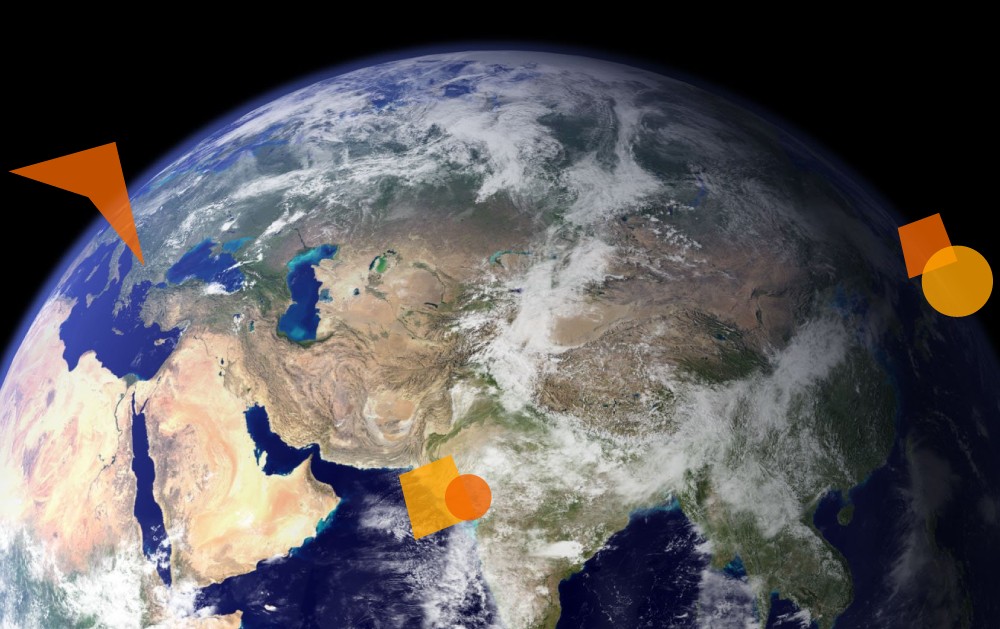
We’re all going to die. Once upon a time we might have gracefully slipped away in our sleep, or not so gracefully, expired in a fit of bodily fluids from any one of a hundred nasty communicable diseases that we had yet to treat with more than a posy of herbs. Today the greatest enemy of our health, is ourselves.
Yet our health is more than the sum of the things we put in our own bodies; it is intrinsically linked to both the climate and the environment. Last year, the IPCC stated that we must act ‘now or never’ to stave off the worst impacts of global warming,1 as a literal tsunami of disease stands ready to engulf us.
A hot earth equals intense storms, floods, wildfires, drought, and dust storms,2 further exacerbating our already generous contribution to the pollution of air and waterways with waste and greenhouse gases. Aside from the loss of infrastructure, property and life, such weather events will take global health, already in crisis, to catastrophe.
In 2012, non-communicable diseases (NCDs) such as obesity, diabetes, cancer, and heart and lung disease were the leading cause of premature death worldwide accounting for 68% of all deaths.3 More than a decade on, they are now responsible for 74% of all deaths;4 not a coincidental correlation to the lack of love for our planet.
In developed countries, our lifestyle of overindulgence and inactivity, resulting in obesity, is a key risk factor for NCDs,5, while in emerging countries, poverty, and its associated behaviours, such as; heavy tobacco use, lack of access to nutritious food and indoor air pollution, caused by smoke from cooking on open fires, are the main culprits.6
All of this is inextricably linked with climate change in an infinite loop even Escher would struggle to draw.
The land requirements of meat and dairy production to feed our gluttonous appetites equals that of North and South America combined, with global livestock feeding taking up 83% of the global agricultural land.7 Meanwhile, tobacco production is responsible for up to 5% of global deforestation.8 Both result in massive amounts of CO2 being released into the atmosphere, and the destruction of habitats disrupts fragile ecosystems, thus driving the extinction of wild plants and animals.7
But that’s merely the current state of play. A warm dry earth, with a lack of access to clean water increases the risk of infectious disease,2 and as crops fail, food scarcity will lead to malnutrition; an important risk factor for non-communicable diseases.9 On the other hand, a warm wet earth risks contaminating water and food sources to a similar result, not to mention favouring the procreation of infectious disease-carrying insects such as mosquitoes, fleas and ticks.2
The earth is already groaning in pain, displaying symptoms of pandemic, loss of biodiversity, loss of fertile soils, ocean acidity and extreme weather events, and global health is creaking with its weight. Pollution accounts for ~nine million global deaths each year,10 13 deaths per minute, due to NCDs including lung cancer, heart disease and strokes, that can be traced back to air pollution,11 while around 137 deaths occur each hour due to diseases relating to unsafe water sources.12
At a minimum, global emissions of CO2 need to peak within the next two years to stave off the worst impacts of climate change, and even if emissions targets that governments had put in place by the end of 2020 were fully implemented, the world will still warm by 3.2oC this century.1 To avoid this rise, which would hail unprecedented heatwaves, terrifying storms, and widespread water shortages, we need to keep any increase in temperature at or below 1.5oC.1
It can be done, but it’s going to require massive change in how we approach energy production, industry, transport, consumption. The carbon emissions from everything that we do, buy, use, or eat must peak by 2025.1
Renewable energy sources have the potential to provide 90% of the required reduction in energy‑related CO2 emissions.13 In 2020, passenger cars produced the highest CO2 emissions; 41% of global transportation emissions.14 The introduction of low-carbon fuel sources including bio-based fuels and hydrogen could help significantly reduce our transport emissions.1 Feeding ourselves on a plant-based diet would utilise 75% less of global agricultural land,15 not to mention reduce tonnes of methane emissions from burping and farting cattle; which are the number one agricultural source of greenhouse gases worldwide.16
While much change must be driven by government policy and collaboration, many of us are able to make choices about what we eat, where we buy and how we consume energy. Speaking at a press conference at the United Nation’s Headquarters in New York, UN Secretary-General, Antonio Guterres said: “For too long, we have been waging a senseless and suicidal war on nature”17 and we have little time to turn the tide climates impact on our world and our health. By protecting nature, we protect ourselves and those who have fewer choices.
To use Greta’s words: “If we don’t change, we are f**ked”.7